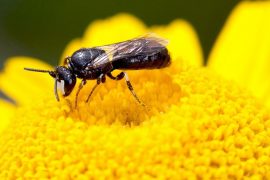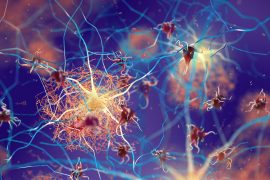H7N9 avian influenza: gender differences in disease progression
About 20 years ago, the occurrence of low pathogenic species for birds was reported for the first time bird flu virus on A (H7N9) People informed of. Since then, thousands of people around the world have been infected with this pathogen. Researchers are now reporting that such infections gender difference In disease course Huh.
An international research team has shown for the first time that infection with avian flu virus H7N9 attacks the hormone axis in men but not in women. And low testosterone levels have been linked to the development of serious or fatal conditions in men. The results of the study were published in the journal “nature communication” free.
more infections in men
As one message According to the Leibniz Institute for Virology (LIV), avian influenza viruses of the H7N9 subtype (H7N9 bird flu virus) are characterized by a large epidemic and pandemic potential.
H7N9 avian flu virus first appeared in March 2013 species barriers left and passed from birds to humans. Males were affected more often than females. The incidence of H7N9 was higher in men than in women after five waves of the pandemic.
To understand the mechanisms behind these gender-specific differences, an interdisciplinary team from LIV in Hamburg, the Chinese National Influenza Center of the Chinese Centers for Disease Control and Prevention (China CDC) and the School of Public Health (Shenzhen), Sun Yat-Sen University Patients’ data is laboratory verified H7N9 infection and compared them to H7N9-negative close contacts and people with seasonal flu.
H7N9 infection lowers testosterone levels
The researchers show that H7N9 infection specifically attacks the hormone axis in men, but not in women. In men, H7N9 infection leads to decreased testosterone levels, which is associated with severe and even dangerous result correlated.
In contrast, seasonal H1N1 or H3N2 influenza had no significant effect hormone axis in patients.
In mouse model, scientists confirm causal relationship between H7N9 infection and testosterone deficiency among men. They also show that the H7N9 avian influenza virus replicates in the testes of mice and causes local and systemic inflammation, possibly affecting testosterone production.
Avian influenza virus requires high vigilance
According to experts, little is known about the molecular mechanisms that lead to gender specific Disease progression in respiratory virus infection.
The current study may serve as a blueprint for studies of gender differences in others. respiratory infections Including SARS-CoV-2, as seen in the current pandemic.
“Avian influenza viruses continue to pose a high pandemic and pandemic risk. The 2021/2022 season has been the biggest avian flu pandemicRecorded around the world including Europe”Says Professor Gulsah Gabriel, head of the LIV research unit Viral Zoonoses – a professor of health and veterinary medicine at the University of Hannover.
Therefore, according to the researcher, understanding molecular mechanismwhich express a gender-specific course of the disease are of critical importance for individualized patient management.
“Strict surveillance and mass vaccination of chickens have so far prevented the H7N9 virus from spreading to humans. But avian flu viruses are evolving and higher levels are needed. promptness,, said Professor Yulong Shu, former director of the China National Influenza Center at the China CDC. (advertisement)
Author and source information
This text conforms to the requirements of the expert medical literature, medical guidelines and current studies and has been checked by medical professionals.
Source:
- Leibniz Institute for Virology (LIV): H7N9 bird flu in humans: gender differences during the course of the disease, (accessed November 16, 2022), Leibniz Institute for Virology (LIV)
- Tian Bai, Yongkun Chen, Sebastian Beck, Stephanie Stannell-Bertram, Nancy Kouassi Mounogou, Tao Chen, Ji Dong, Bettina Schneider, Tingting Jia, Jing Yang, Lizzie Wang, Andreas Meinhardt, Antonia Zaff, Lothar Krainbrock, Dayan Wang, Yulong Shu & Gulsah Gabriel: H7N9 avian influenza virus infection in men is associated with decreased testosterone; In: Nature Communications, (Published: 2022-11-14), nature communication
Important Notes:
This article contains general advice only and should not be used for self-diagnosis or treatment. It cannot replace a visit to the doctor.

Web guru. Amateur thinker. Unapologetic problem solver. Zombie expert. Hipster-friendly travel geek. Social mediaholic.





